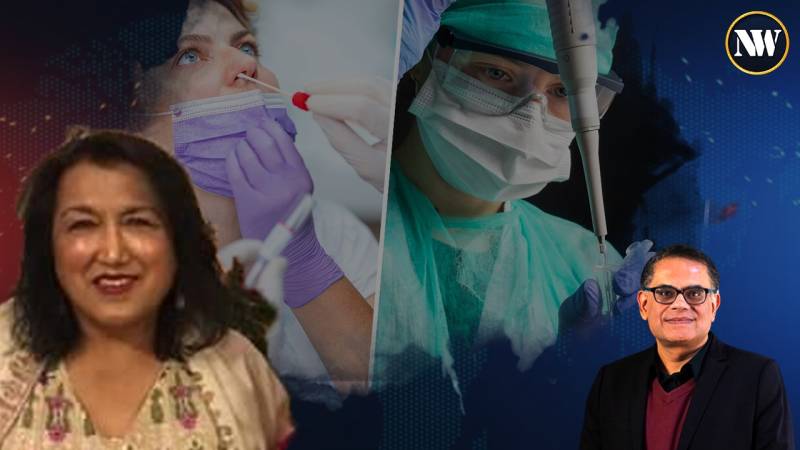Dr. Zoovia Hamiduddin, an experienced medical practitioner based in New York, recently shed light on the resurgence of COVID-19 in the country. The conversation delved into the persistence of long-term COVID cases, the impact of online misinformation, vaccine hesitancy, and the need for a collective response.
She emphasized that the pandemic, which has gripped the world for more than three years, is far from over. New York is grappling with a surge in cases, with alarming figures revealing an incidence rate of 1,275 cases per 1,000 people, equivalent to about 10% of the population. This resurgence is fueled by new variants, including the alarming "ba 2.86," which has shown a worrisome 30 mutations.
One of the most critical aspects discussed in the interview was the pervasive influence of misinformation, particularly through online platforms like Facebook and various forms of media. Dr. Hamiduddin highlighted how misinformation has led to vaccine hesitancy, resistance to mask-wearing, and the promotion of unfounded conspiracy theories. Of particular concern was the spread of baseless claims about the COVID-19 vaccine. Dr. Hamiduddin recounted instances where patients, influenced by misinformation, believed that the vaccine contained tracking chips or would render them infertile. These misconceptions illustrate the dire consequences of false information and highlight the urgent need for accurate, science-based communication.
Lines have significantly blurred between truth and falsehoods in media. The traditional role of the media in delivering accurate information has been compromised. With the rise of social media and digital platforms, the dissemination of both credible and false information has become indistinguishable to many. This phenomenon has eroded trust in reliable sources, including government agencies and healthcare professionals. People have grown increasingly skeptical, leading them to turn to unverified sources and anecdotal stories, further fueling the spread of misinformation.
In a similar vein, the confirmation bias perpetuates misinformation. People tend to seek out and accept information that aligns with their existing beliefs, even if it lacks scientific validity. This cognitive bias has a profound impact on decision-making during the pandemic. For instance, individuals hesitant about vaccines are more likely to accept and share stories that reinforce their doubts, creating an echo chamber effect that reinforces vaccine hesitancy.
Perhaps the most critical concern was the tangible public health consequences of misinformation. Misinformation has led to individuals rejecting recommended public health guidelines, avoiding vaccination, and resisting preventive measures. This has the potential to prolong the pandemic, increase infection rates, and exacerbate the strain on healthcare systems. Individuals who believe in vaccine-related misinformation may choose not to get vaccinated, leaving themselves vulnerable to the virus and contributing to community transmission. Similarly, those who dismiss the importance of mask-wearing or social distancing can inadvertently facilitate the virus's spread.
To mitigate the impact of misinformation, there is an urgent need for media literacy and critical thinking education. Equipped with these skills, individuals can navigate the digital landscape more effectively, discern credible information, and make informed decisions that protect their health and the well-being of their communities. Addressing the challenges posed by misinformation requires collaboration among governments, technology companies, educational institutions, and healthcare professionals. By working together to promote accurate information and combat falsehoods, we can navigate these blurred lines and safeguard public health in an increasingly digital world.

